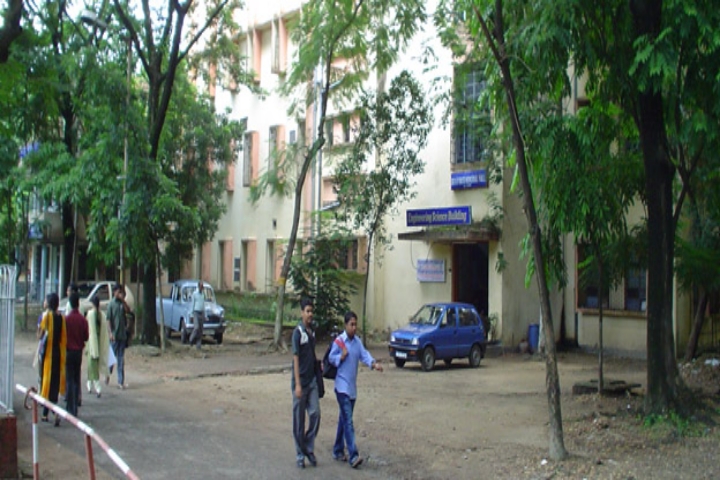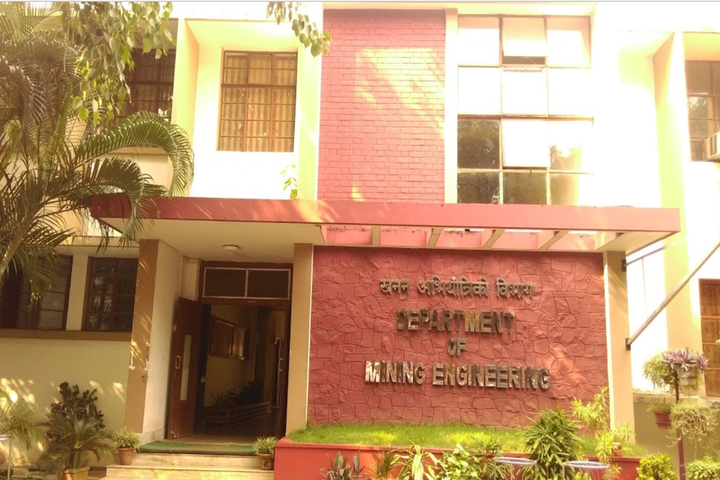
Electronics and Telecommunications Engineering Course Details - Fees, Subjects, Syllabus, Duration, Eligibility, Career Scope
Degrees offered: Diploma, B.E /B.Tech, M.E /M.Tech., Ph.D, M.Sc.
What is Electronics and Telecommunications Engineering
Electronics and Telecommunications Engineering (ETE) is a specialised branch of engineering that focuses on the design, development, and maintenance of electronic communication systems. The course combines principles of electronics, signal processing, and telecommunication networks to allow efficient data transmission across wired and wireless systems.
The ETE curriculum covers areas such as digital and analogue communication, microwave engineering, satellite systems, and network protocols. Students gain both theoretical knowledge and practical skills, preparing them for careers in telecommunications, broadcasting, IT, and electronics industries, as well as opportunities in research and development.
Graduates of Electronics and Telecommunications Engineering can work in roles ranging from Network Engineers and System Designers to Research Scientists and Technical Consultants. The field offers global opportunities, rapid technological advancement, and the chance to contribute to innovations in mobile communication, internet technologies, and electronic devices.
Electronics and Telecommunications Engineering- Highlights
Electronics and Telecommunications Engineering is a rapidly evolving branch of engineering that offers diverse career opportunities in both government and private sectors. Graduates can work in designing, maintaining, and managing communication systems, networks, and electronic devices. Below are the key highlights of the Electronics and Telecommunications Engineering course.
Particulars | Values |
|---|---|
Branch Name | Electronics and Telecommunications Engineering |
Degree | |
Duration | UG: 4 years PG: 2 years |
Eligibility | UG: 10+2 in science PG: Bachelor’s degree in the same or related field |
Admission Process | Entrance Examination/ Direct Admission |
Entrance Exam | UG: JEE Main, JEE Advanced, SRMJEEE, VITEEE PG: GATE, SRMJEEE PG, Karnataka PGCET |
Course Fees | Rs. 22,000 to Rs. 8.17 Lakhs |
Job profiles | Electronics and Telecommunication Engineer, Telecom Engineer, Communications Engineer, Electronics Communications Technician, Telecommunications Network Engineer |
Average Salary | Rs. 3.5 LPA- Rs. 4.5 LPA |
Recruiting Companies | BSNL, MTNL, DRDO, NPL, BEL, Airtel, Fiserv, HCL technologies, Nokia, Syntel, Ericsson |
Specialisation or Similar Ones
Electronics and Telecommunications Engineering offers several specialisations focusing on communication systems, signal processing, embedded technologies, and network management. These areas prepare students with advanced skills to develop electronic devices, optimise network performance, and innovate in wireless, optical, and digital communication technologies. Key specialisations in this field include:
Optical Communication | |
Signal Processing | |
Wireless Communication |
Top Private Electronics and Telecommunications Engineering Colleges in India
Many Private educational institutions in India offer Electronics and Telecommunications Engineering at both undergraduate and postgraduate levels. The tuition fees at these private universities are generally higher compared to public universities. In the following, we will discuss some of the top colleges for Electronics and Telecommunications Engineering, along with their respective tuition fees.
| Top Colleges | NIRF Ranking | Fees |
|---|---|---|
36 | Rs. 16.75 Lakhs | |
75 | Rs. 5.38 Lakhs | |
101-150 | Rs. 5.16 Lakhs | |
101-150 | Rs. 1.86 Lakhs | |
150-200 | Rs. 4.76 Lakhs | |
150-200 | Rs. 4.84 Lakhs | |
151-200 | Rs. 6.95 Lakhs | |
151-200 | Rs. 5.08 Lakhs | |
201-300 | Rs. 8.93 Lakhs | |
201-300 | Rs. 3.86 Lakhs |
Note: The fee structure provided above can be for any particular Electronics and Telecommunications Engineering (Diploma/ Degree/PGD).
Top Government Electronics and Telecommunications Engineering Colleges in India
Studying Electronics and Telecommunications Engineering at a government institute is a great choice because it is more affordable than a private institute and also offers quality education. In the table below, we have mentioned the top government colleges in India offering Electronics and Telecommunications Engineering courses at undergraduate and postgraduate levels.
| Top Colleges | NIRF Ranking | Fees |
|---|---|---|
18 | Rs. 22,840 | |
54 | Rs. 6.46 Lakhs | |
90 | Rs. 6.02 Lakhs | |
101-150 | Rs. 3.34 Lakhs | |
101-150 | - | |
151-200 | Rs. 1.71 Lakhs | |
- | Rs. 10.45 Lakhs | |
- | Rs. 4.29 Lakhs | |
- | Rs. 3.35 Lakhs | |
- | Rs. 57,480 |
Eligibility Criteria (UG & PG) of Electronics and Telecommunications Engineering
Eligibility requirements are a set of criteria that guarantee the candidate’s admission to the respective institute. Generally, for an undergraduate course, the candidate must clear their 10+2 in the Science stream with a valid score; similarly, for a postgraduate course, the candidate must have a Bachelor’s degree in a relevant discipline. Detailed below are the general eligibility criteria for Electronics and Telecommunications Engineering.
Eligibility Criteria for UG Courses
The eligibility criteria to pursue Electronics and Telecommunications Engineering in India may vary by the institute. Only the candidates who meet the required cutoff are given admission into the college of their choice. To pursue an Electronics and Telecommunications Engineering course at the undergraduate level in India, students should meet the following basic eligibility criteria:
- Aspirants must have passed 10+2 examination or an equivalent in the science stream from a recognised board or university in India.
- Students must have studied Physics, Chemistry, and Mathematics as their subjects.
- The criterion of minimum marks varies, but an aggregate of 50 per cent to 60 per cent is required by most of the colleges.
- Some universities may conduct entrance examinations.
Top Entrance Exams for UG Courses
Candidates who wish to pursue Electronics and Telecommunications Engineering at an undergraduate level must appear for relevant entrance examinations. Merit scores, along with entrance test results, are considered by many colleges for granting admission to students. Some of the relevant entrance examinations to pursue Electronics and Telecommunications Engineering are as follows:
| Exam Name | Level | Conducting Body | Exam Schedule |
|---|---|---|---|
National | NTA | ||
National | IITs | ||
National | SRM Institute of Science and Technology | ||
National | VIT Engineering College |
Eligibility Criteria for PG Courses
Students are advised to check the Electronics and Telecommunications Engineering eligibility of the desired institute, available on their official website. They are required to meet the eligibility criteria to get admission into a college of their choice. Mentioned below are the basic eligibility criteria for postgraduate courses that students must fulfil.
- Candidates must have graduated in Electronics and Telecommunications Engineering to be eligible for the master’s programme in the same.
- They must have achieved an aggregate score of at least 60 per cent during their undergraduate degree.
- Admission may be based on a combination of entrance exam scores and performance in personal interviews or group discussions, depending on the university’s requirements.
Top Entrance Exams for PG Courses
Most colleges grant admission based on the entrance test results, along with considering the merit scores of students. Aspiring candidates need to take certain entrance examinations to start their Electronics and Telecommunications Engineering PG journey. Candidates need to clear the cutoff of the following entrance examinations to pursue a PG in Electronics and Telecommunications Engineering.
| Exam Name | Level | Conducting Body | Exam Schedule |
|---|---|---|---|
National | Indian Institute of Science (IISc), Bangalore and Seven Indian Institutes of Technology (IITs) | ||
University | SRM University | - | |
University | Karnataka Examination Authority | - |
College Predictors VIEW ALL
Scope of Electronics and Telecommunications Engineering in India and Abroad
The scope of Electronics and Telecommunications Engineering in India is extensive, supported by the rapid growth of digital communication, 5G technology, and smart infrastructure. Graduates can work in industries such as telecommunications, IT, healthcare technology, mobile communication, and consumer electronics manufacturing, contributing to innovation and efficient connectivity.
Electronics and Telecommunications Engineering graduates can pursue careers in system design, product development, network management, and equipment maintenance. They can work with leading corporations, research organisations, and technology startups, focusing on improving communication systems and electronic devices. The field offers strong career potential in both domestic and global markets.
Course Fees Electronics and Telecommunications Engineering
| Minimum Fees | Maximum Fees | |||
|---|---|---|---|---|
| Private | Government | Private | Government | |
| UG | ||||
| PG | ||||
| DOCTORAL | ||||
| DIPLOMA | ||||
Course Subjects
The syllabus for Electronics and Telecommunications Engineering varies by the level of the programme. The UG programme and PG programme in Electronics and Telecommunications Engineering cover different aspects of the curriculum. The academic curriculum of ETE provides a holistic growth opportunity to students by providing them with the necessary theoretical and practical knowledge.
Electronics and Telecommunications Engineering Syllabus for UG Courses
The Electronics and Telecommunication engineering syllabus for undergraduate courses depends on the institute, but the overall course structure remains the same for every institute in India. Some of the subjects offered are Engineering Mathematics, Environmental Studies, Electrical Fundamentals, and Network Theory. Mentioned below is the syllabus for B.Tech in ECE at Pillai College of Engineering, University of Mumbai.
Semester 1 | Semester 2 |
Engineering Mathematics I | Engineering Mathematics II |
Engineering Physics I | Engineering Physics II |
Engineering Chemistry I | Engineering Chemistry II |
Engineering Mechanics | Engineering Drawing and Graphics |
Basic Electrical Engineering | Python Programming I |
Basic Engineering Workshop I | Professional Communication and Ethics I |
- | Basic Engineering Workshop II |
Semester 3 | Semester 4 |
Engineering Mathematics III | Engineering Mathematics IV |
Electronics Devices | Electronic Communication Systems |
Network Theory | Linear Integrated Circuits |
Instruments and Control System | Digital Signal Processing |
Signals and Systems | Microprocessor & Microcontroller |
Python Programming II | Personal Financial Management |
Mini Project I | Programming (Matlab and Scilab) |
- | Mini Project II |
Semester 5 | Semester 6 |
Digital Communication | Wireless and Mobile Communication |
Electromagnetic Engineering | Antenna Theory and Design |
Image Processing and Machine Vision | WM and AT Lab |
Embedded Systems | R Programming |
Programming (Java and Scripting) | Elective II |
Professional Communication and Ethics II | Elective III |
Elective I | - |
Mini Project III | - |
Semester 7 | Semester 8 |
Microwave and RF Design | Elective VI |
Human Values and Social Ethics | Institute Elective III |
Elective IV | Major Project C |
Elective V | Internship |
Institute Elective II | - |
Major Project B | - |
Electronics and Telecommunications Engineering Syllabus for PG Courses
Candidates can check the syllabus for Electronics and Telecommunication Engineering for a postgraduate degree on the official website of the institute. Some of the subjects offered are Mobile Communication, Filter Theory, and Optical Communication and Networks. Mentioned below is the M.Tech Electronics and Telecommunication Engineering syllabus of the College of Engineering, Pune.
Semester 1 | Semester 2 |
Mobile Communication | Adaptive Filter Theory |
Statistical Information Processing | High Performance Network |
Advances in Digital Communication | Pattern Recognition |
Optical Communication and Networks | Antennas and Radiating Systems |
Voice and Data Networks | RF and Microwave Circuit Design |
Measurement and Standards for Communication Systems | Satellite Communication |
Seminar | Wireless Sensor Network or MIMO System |
LLC | PG Laboratory II |
PG Laboratory I | - |
Semester 3 | Semester 4 |
Environmental Studies | Project Stage I |
Constitution of India | - |
Project Stage I | - |
Careers in Electronics and Telecommunications Engineering
Electronics and Telecommunications Engineering offers diverse career opportunities across various sectors, including communication, electronics, and networking. Professionals in this field work on designing, developing, and maintaining advanced communication systems that support global connectivity. Below are some of the prominent job roles in Electronics and Telecommunications Engineering:
| Job Profiles | Description |
|---|---|
Electronics & Telecommunication Engineers | Electronics and Telecommunication Engineers design, develop, and maintain electronic communication systems and devices. They ensure efficient data transmission and enhance the performance of telecommunication networks. |
Telecom Engineers work on the installation, testing, and maintenance of communication networks. They help improve mobile, broadband, and satellite communication systems for better connectivity. | |
Communication Engineers | Communication Engineers design and optimise communication systems for voice, data, and video transmission. They work with advanced technologies to ensure seamless and reliable communication. |
Electronic Technicians | Electronic Technicians assemble, repair, and test electronic equipment used in communication systems. They assist engineers in ensuring devices operate efficiently and meet performance standards. |
Network Telecom Engineers | Network Telecom Engineers manage and troubleshoot telecommunication networks. They focus on enhancing network speed, reliability, and security for large-scale communication systems. |
Upcoming trends
The field of Electronics and Telecommunications Engineering (ETE) is rapidly advancing, driven by technological innovations and the growing demand for faster, smarter, and more secure communication systems. The discipline integrates electronics, networking, and digital technologies to improve connectivity and efficiency. Some of the current and upcoming trends are as follows:
- Internet of Things (IoT) – Connecting devices and systems for real-time data sharing and automation.
- 5G and Network Infrastructure – Enhancing mobile communication with faster speeds, lower latency, and improved connectivity.
- Artificial Intelligence (AI) – Implementing AI for network optimisation, predictive maintenance, and intelligent communication systems.
- High Resolution Content – Supporting ultra-HD video streaming, VR/AR applications, and advanced multimedia communication.
- Cybersecurity – Protecting communication networks and data from cyber threats and breaches.
- Cloud Computing – Allowing scalable, remote, and efficient data storage and processing for communication services.
Job Profiles and Top Recruiters
Electronics and Telecommunications Engineering provides excellent career opportunities across diverse industries. Graduates can work with leading public and private sector organisations involved in communication technology, electronics, and network development. Mentioned below are some of the top recruiters that hire professionals from the field of ETE:
Top Recruiters
- BSNL
- MTNL
- Airtel
- HCL Technologies
- Ericsson
- Nokia
- Bharat Electronics Limited
- National Physical Laboratory
Average Salary
The average salary of an Electronics and Telecommunication engineer depends on many factors, such as the location of the corporation, the skills and experience of the candidate, and the job profile chosen by the candidate. Mentioned below are the average salaries of some of the popular career options in the field:
| Job Profiles | Average Salary (LPA) |
|---|---|
Electronics & Telecommunication Engineer | Rs. 5.1 LPA |
Telecom Engineer | Rs. 4.1 LPA |
Communication Engineer | Rs. 8.7 LPA |
Electronic Technician | Rs. 3.2 LPA |
Network Telecom Engineer | Rs. 4.6 LPA |
Source: AmbitionBox
Required Skillset for Electronics and Telecommunications Engineering
In the field of Electronics and Telecommunications Engineering, candidates require a mix of technical expertise and interpersonal abilities to succeed. These skills enable them to design, analyse, and manage communication systems efficiently while adapting to technological advancements. Mentioned below are some essential skills for this discipline:
- Technical Proficiency
- Problem-Solving Skills
- Analytical and Logical Thinking
- Programming and Coding Knowledge
- Circuit Design and Simulation
- Communication and Teamwork Skills
- Time Management
- Continuous Learning and Adaptability
Course Curriculum for Electronics and Telecommunications Engineering
In Electronics and Telecommunications Engineering, students learn to design and develop electronic and communication systems, devices, and applications. They apply theoretical knowledge to solve practical problems and gain hands-on experience. Core subjects include Circuit Theory, Digital and Analogue Communication, Signal Processing, Microelectronics, Embedded Systems, and Network Engineering.
The curriculum also focuses on practical training through labs, projects, and industrial internships. Students develop skills in circuit analysis, VLSI design, power electronics, and communication systems troubleshooting. Workshops, technical seminars, and industrial visits expose them to emerging technologies, combining academic learning with industry practices to prepare graduates for professional roles in electronics and telecommunications.
Popular Electronics and Telecommunications Engineering Entrance Exams in India
JEE Main
Exam Date: 01 Apr, 2026 - 10 Apr, 2026 (Tentative)
GATE
Exam Date: 07 Feb, 2026 - 08 Feb, 2026
COMEDK UGET
Application Process: 03 Feb, 2026 - 16 Mar, 2026
CUET UG
Application Process: 03 Jan, 2026 - 04 Feb, 2026
MHT CET
Application Process: 10 Jan, 2026 - 12 Feb, 2026
CG PPT
Exam Date: 07 May, 2026
Frequently Asked Questions (FAQs)
Question: What are the popular career options in the field of Electronics and Telecommunication engineering?
Answer :
Some of the popular career options in the field of Electronics and Telecommunication Engineering are Electronics and Telecommunication Engineer, Telecom Engineer, and Telecommunications Engineer.
Question: What are the subjects taught in Electronics and Telecommunication Engineering?
Answer :
Some of the subjects taught in Electronics and Telecommunication engineering are Engineering Mathematics, Engineering Physics, Digital Communication, Digital Signal Processing, and Embedded Systems.
Question: What are the top entrance examinations for Electronics and Telecommunication engineering courses?
Answer :
The top entrance examinations for Electronics and Telecommunication Engineering are JEE Main and JEE Advanced for undergraduate degrees, and the GATE exam for postgraduate degrees in Electronics and Telecommunication Engineering.
Question: What would be the placement of Electronics and Telecommunications Engineering students?
Answer :
Students are placed in companies of the private and public sector like DRDO, ISRO, BEL, BHEL, Capital IQ, TCS, HCL. They work as Design Engineers, Marketing Professionals, Sales Engineering, and System-level Engineers.
Question: What is the eligibility criteria of Electronics and Telecommunication Engineering courses?
Answer :
The eligibility criteria depend on the level of education. For an undergraduate course, the candidates must clear their 10+2 with a valid aggregate score. For a postgraduate course, the candidates must successfully clear their Bachelor's degree in Electronics and Telecommunication Engineering or a related discipline.






















